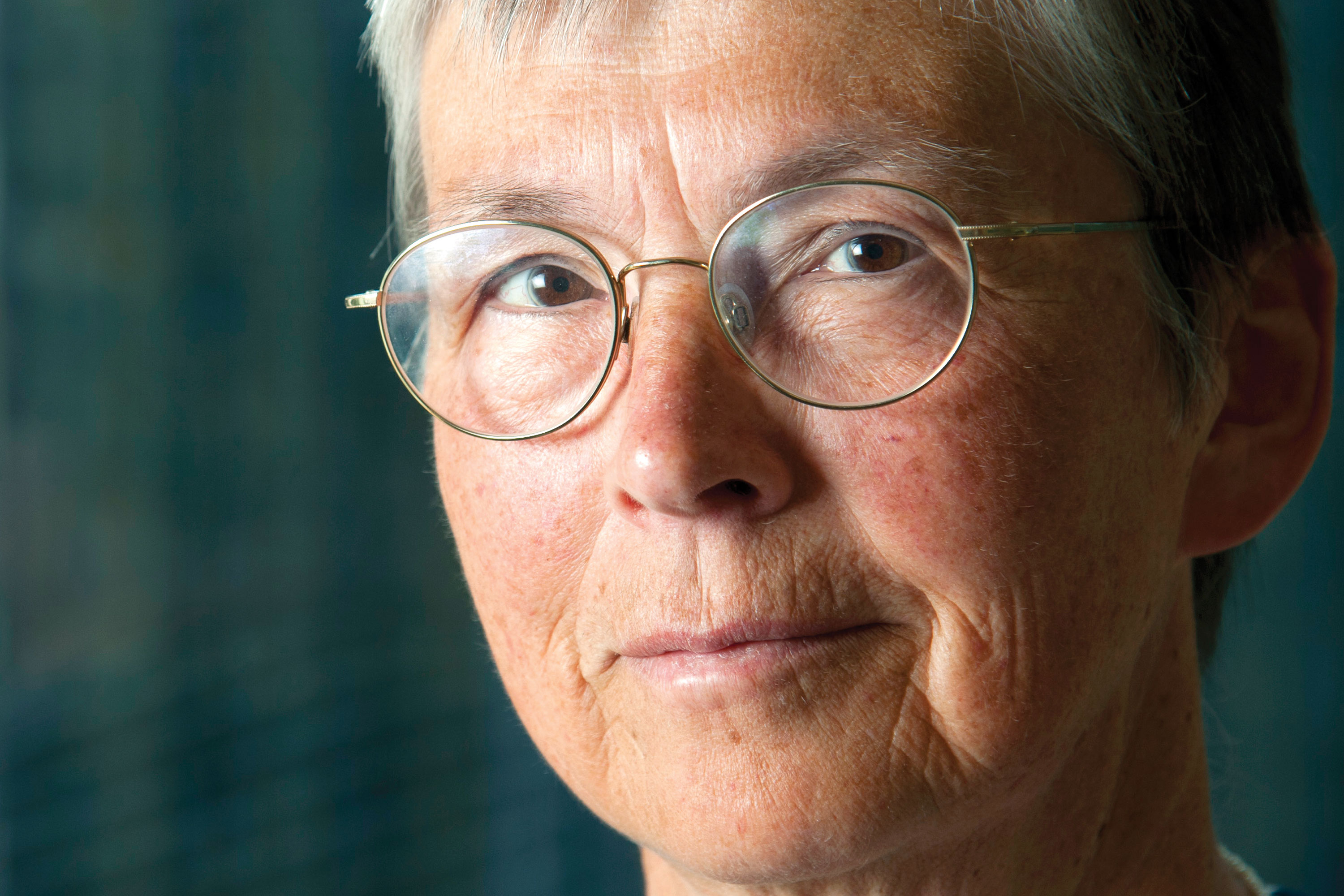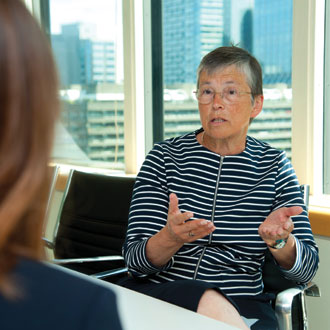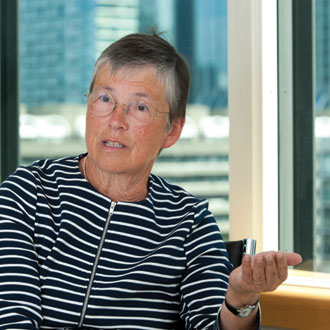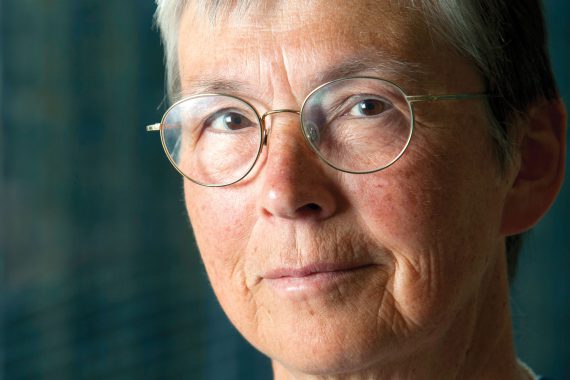
dr iona heath 3×2
Fresh from a trip to Australia, Dr Iona Heath radiates warmth and enthusiasm.
The former RCGP president and renowned writer, who is a champion of a ‘less is more’ approach to medicine, is in great demand to speak at international scientific conferences around the world about overmedicalisation of healthcare.
Although she is now retired from her north London practice, it is easy to hear why Dr Heath is still so respected in the profession. As she sits down with Pulse she talks compellingly of the challenges for general practice in resisting pressure to overtreat and her distaste for the increasing number of interventions GPs are being asked to make in healthy people.
And her movement is gaining traction, with NICE recently releasing its multimorbidity guideline advising a more rational approach to prescribing in those with multiple conditions. But she still has a mountain to climb if she is to persuade politicians, desperate for votes, that medicine and healthcare have their limits.
Overmedicalisation has been partly blamed on increased guidelines and the ‘codification’ of general practice. Has the profession lost its way?
Yes. I think the QOF was done with the best of intentions, but if you define quality in terms of a checklist and try to base all practice on guidelines, then effectively you stop the doctor thinking about the individual patient.
There are all sorts of things that make people ill other than biomedical disease. If doctors stop thinking and just follow guidelines, the chance of making the individual feel seen and heard is reduced dramatically, leading to overtreatment, overdiagnosis and overmedicalisation.
We also seem to have raised a generation of doctors who are afraid of deviating from guidelines and see them as the legal standard of good practice. Young doctors seem to overestimate the rate of complaints and written litigation (although I know it’s going up) because we’re not doing enough to highlight the extent of uncertainty within medical practice. It is impossible get it right all the time. It’s an issue of judgement, every single moment of every day.

dr iona heath 1 330x330px
Where have guidelines specifically gone wrong?
They’re based on evidence derived from the past. If you’re following guidelines, you are not actually at the cutting edge of research evidence. Take the HbA1c threshold; we now know it was set too low and probably caused significant harm by precipitating hypoglycaemia and falls, particularly in older people.
And although I know NICE is trying now to address multimorbidity, it hasn’t done so to date. So older people who have a whole range of different conditions end up on multiple medications, and we know that’s incredibly harmful. You can’t follow all those guidelines without inflicting multiple medications on people.
So, what do you think of NICE’s planned multimorbidity guidelines – including advice on when to stop unnecessary medications and the use of individual care plans?
It’s good, but I retain a deep scepticism about pathways. And a care plan… we’ve had healthcare professionals who were brilliant at writing care plans but absolutely useless at communicating with patients. An awful lot of time goes into creating a care plan that would be better spent with the patient so they feel heard, understood and valued.
There is a lot of focus now on diabetes prevention and health checks – do you think this comes down to a drive to save money in the long term?
There is no evidence health checks make any difference to the population’s health. People have found this hard to believe so there have been repeated trials that don’t show anything. And then there is the hypocrisy of it all. One of the low points of my virtual relationship with health secretary Jeremy Hunt was when he wrote to GPs saying it was time they tackled health inequalities, just as the Government was introducing the bedroom tax and slashing benefits, which we know harms the health of the poorest and most vulnerable. So their policies make people sicker and they expect the health service to sort it out. It’s outrageous; you cannot sort out health inequalities against a background of worsening socioeconomic inequalities.
Do you think this kind of approach is a deliberate means to undermine the health service and its ethos?
Jeremy Hunt has such bizarre ideas. I don’t think he’s a stupid man but he’s made no attempt to understand the nature of healthcare, and at the same time he’s alienated a whole generation of doctors. He has a fiduciary responsibility to NHS staff to support their morale, to look after them, but I think he behaves in exactly the opposite way. I don’t see how that’s forgivable.
Was the 2004 GP contract a mistake?
Yes, I’ve always thought so. I voted against it and I would do so again – [because of the introduction of pay for performance] but also I think it was a tragedy for the profession that we lost control of out of hours. Nobody can work 24 hours a day, seven days a week, but we lost responsibility for how that was organised, and a lot of people stopped participating because there was absolutely no continuity of care.

dr iona heath 2 330x330px
Is there a risk of harking back to the days of Dr Finlay, which can’t fit with the modern NHS?
I do think it’s perfectly possible to go back to smaller units. It worries me that health centres get bigger and bigger, practices are lumped together, people don’t feel they belong, localness disappears. General practice is so much easier if you know your patients, which is why out of hours has become so much more difficult. Patients feel so vulnerable and so insecure that these things are really important – knowing you’re seeing someone who recognises you. I think it’s important for a practice to try to create that feeling but if it’s too big, it’s very difficult to do that.
‘Small is beautiful’ is a very important thing, even if you are federated. In a big setting, you need to try to create a small team of people around each patient who know each other.
General practice, by its very nature, should be a cottage industry. Hospitals – ok, secondary care is a high-tech industry, it relies on a lot of high-tech equipment, and a lot of hyper-specialisation. But it has to be balanced by the small, the local, the easily accessible, and that’s what general practice should be offering.
Would initiatives like longer consultations help?
A lot of young GPs are really desperate for longer consultations but I don’t think that would give them what they want – more time to be certain. The question is, are four 10-minute consultations spread over three or four months the same as a single 40-minute consultation? It isn’t, because you’ve developed the relationship over time – you’ve seen what time is doing to the illness, you’ve learned more about each other.
How can the shift to overmedicalisation be reversed?
I think an awful lot of work has to go into a public debate about the levels of uncertainty intrinsic to healthcare, and that every healthcare intervention carries the risk of harm as well as benefit. Very few people understand that and the risk of overdiagnosis associated with screening tests. It’s taken a long time for the cancer screening service to acknowledge that there’s even a possibility of overdiagnosis.
I just think we need a much more intelligent conversation about the nature of health and its relation to the structure of society and about the potential of medicine for good, but also for harm, and the limitations of medicine.
Are you hopeful things can turn around?
I get a sense of momentum in terms of the overdiagnosis and overtreatment thing. But I think we’ve got a lot more work to do in terms of the lack of certainty in healthcare, and the limitations of our understanding of how the human body works. Bodies are not machines, and that’s why your 1,000-mile service doesn’t work.
CV
Age
66
Education
Qualified in 1974 from the University of Cambridge
Career
- 1975-2010 GP in Kentish Town, north London
- 1993-2001 Editorial advisor for the BMJ
- 1998-2004 Chair of the RCGP Ethics Committee
- 2004-09 Chair of the BMJ’s ethics committee
- 2006-09 Chair of the RCGP International Committee
- 2007-12 Member of world executive of World Organisation of Family Doctors
- 2009-12 RCGP president
Other interests
She has also written regularly for the BMJ and contributed essays to many other medical journals across the world. Her book Matters of Life and Death was published in 2007 and has been translated into Italian and Spanish
Visit Pulse Reference for details on 140 symptoms, including easily searchable symptoms and categories, offering you a free platform to check symptoms and receive potential diagnoses during consultations.
















